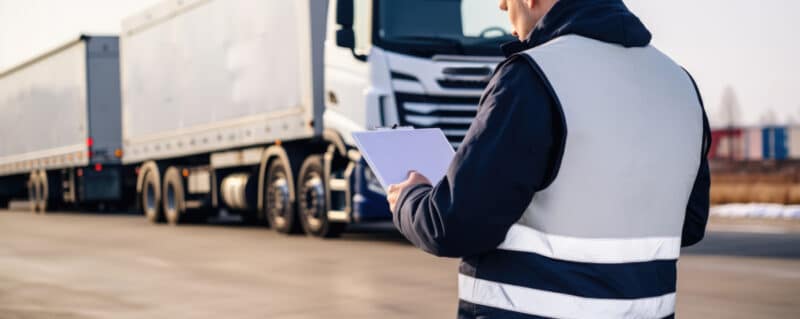The European Union is embarking on the implementation of the Import Control System (ICS2). It will function to facilitate the transfer of information about cargo between EU and third countries.
“Under this initiative, all goods coming from third countries must be reported to the border customs authorities to determine the risk associated with their introduction into the EU,” says Joanna Porath, owner of the customs agency AC Porath.
Key points to note include:
- Polish transport companies must prepare for the changes that the Import Control System 2 brings
- Failure to complete formalities could result in goods being detained at the European Union border
- The new system will be introduced step by step, with a full schedule already in place
The introduction of the Import Control System 2 aims to seal off trade with non-EU countries. However, this signifies new responsibilities for carriers and forwarders.
Carrier Responsibility
“It is worth noting that the Import Control System 2 defines an expanded range of carrier or shipper’s responsibility for introducing goods into the EU customs area. Those responsible for this operation are clearly identified as all entities issuing forwarding bills of lading, importers from the European Union, postal operators, couriers, and combined transport operators,” explains Joanna Porath.
Unpreparedness on operational or technical factors of transport companies for the ICS2 could lead to detaining goods at the EU border. It could also block the possibility of declaring goods for customs clearance by customs-fiscal agencies, which would have to abide by elevated risk standards.
“Incorrectly submitted or incomplete import simplified declarations will be rejected or subjected to additional intervention from customs-fiscal authorities, resulting in the application of possible national sanctions or financial penalties for non-compliance,” says Joanna Tymińska from the AC Porath Customs Academy.
Gradual Introduction
The new Import Control System 2, operating in a ‘single access point’ model, is set to replace the decentralized ICS1 system. Its implementation will be gradual. Late last year marked the full transition to ICS2 in air transport. The next milestones are:
– From 03.06.2024 – Start of the transitional period for maritime and inland navigation
– From 04.12.2024 – Beginning of implementation for shipowners and carriers, as well as the start of the transitional period for forwarders and issuers of forwarder’s bills of lading (HBL)
– From 01.04.2025 – Start of implementation for forwarders and issuers of forwarder’s bills of lading (HBL), as well as the start of the transitional period for road and rail transport
– From 01.09.2025 – Beginning of implementation for road and rail transport
“The introduction of the ICS2 system is spread over time, but transport, shipping, and logistics (TSL) companies should start preparing for these changes now,” adds Joanna Porath.
